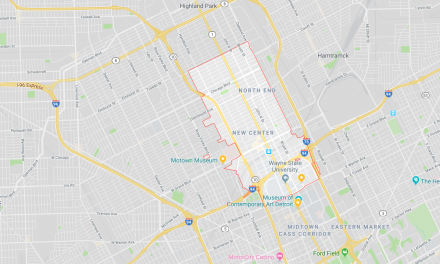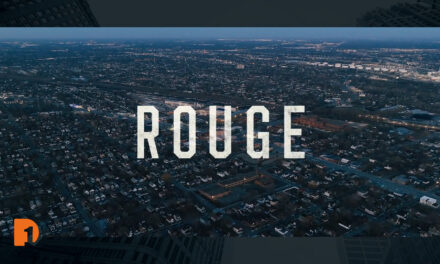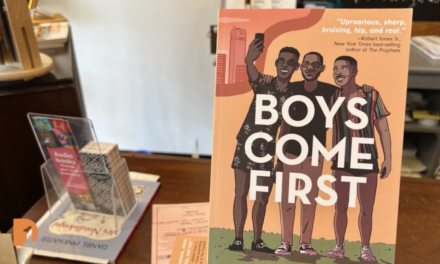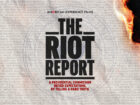One Detroit’s Zosette Guir sits down with University of Michigan Chamber Choir Conductor Eugene Rogers to discuss the choir’s recent performance of the oratorio “Considering Matthew Shepard.” Matthew Shepard was a 19-year-old gay college student attending the University of Wyoming who was brutally murdered. The choir’s performance displays a musical response to Shepard’s death, the hate crime, and his legacy. The production was filmed in partnership with the university’s School of Music, Theatre and Dance as well as the university’s Museum of Art.
One Detroit’s Zosette Guir sits down with University of Michigan Chamber Choir Conductor Eugene Rogers to discuss the choir’s recent performance of the oratorio “Considering Matthew Shepard.” In honor of Pride Month, One Detroit revisits the conversation.
Full Transcript:
Dr. Eugene Rogers, Conductor, University of Michigan Chamber Choir, Director of Choral Activities, University of Michigan: “Considering Matthew Shepard“, is what we consider a passion oratorio that was composed by conductor and composer, Craig Hella Johnson. And it is a powerful work that, is what we consider, a musical exploration about the life and death of Matthew Shepard. In October 1998, Matthew Shepard was brutally killed by two individuals who pretended to be gay. And sadly, after that tragic evening, he was discovered 18 hours later and died five days afterward in the hospital in Laramie, Wyoming. And so, this work is a meditation, if you will.
There’s so many ways that Craig could have told this story. I’m even moved by simply the title considering Matthew Shepard. That, first of all, sets us in a state of, let’s just pause, let’s just take a moment and not point a finger at his perpetrators. We need to tell that story, but think about ourselves as we relate to that, and think about ourselves and how we can even see ourselves actually in the story in the lives of his perpetrators, and that hate will not win in any form.
As we think about social injustices in our world and all that we’re dealing with, it’s good to be reminded that love and forgiveness, and that in opposition to hate, those things will overshadow hate in the end. And I think we need that. We need that reminder as human beings. We need that reminder more than ever today in our world. And I believe that that’s what our students, I know that’s what our students are drawn to. We all want to be inspired and this work constantly reminds us that love and forgiveness, in the end will win.
Working with these talented students here at the University of Michigan is truly one of my greatest joys in my life. And it was shocking to me to realize that these students actually did not know Matthew Shepard’s story. And so, it was such a powerful moment in my life as an African American gay man and someone who remembers all of that went into that, and realized that thereof, the undergraduates especially, had never even heard of him.
Telling that story with these incredible young students, seeing how they have taken to this, not only the music, but that story has been inspiring. It has been— I’ve been encouraged to realize that our future is bright. I believe a conductor has to program works of the past as well as the present. And so, not only do we need to study great works by Handel and Bach and Brahms, but we need to keep telling stories also about today.
This work can stand on its own musically. It is not just, what some may say, a piece of propaganda. It is not that at all; it is a work that is rooted in great stories, as well as great musical styles and compositional techniques. And so, I’m a firm believer in telling disparate stories, as many disparate stories as possible on the stage. Can every audience member, in some way or form see themselves through the stories that we tell on the stage?
I think choral music, vocal music, is positioned in a very unique way because of the stories we can tell with a community of voices, not just one person, but to see the different backgrounds from these students telling this story together as a community, we’ve missed that in COVID. And so, this story right now, as well as telling the story together, it’s been transformative for all of us. I would hope that people would watch this with an open mind. There are some powerful moments; there are some tough moments. We’re not trying to preach; we’re not trying to tell people how to think. I think Craig says it best, we’re just asking them to consider, to just meditate, to just think about ourselves as it relates to Matthew and others.
[Music Lyrics]: Some stormy story waiting to be told / Where oh where has the innocence gone?
Dr. Eugene Rogers: I think one of the things that’s so special about the music, is because we get to, no matter what a person’s background is, no matter what their socioeconomic status, religion, when we sit down together and focus all of our energies on this gift, I call it a gift, of music and these stories, nothing else matters. Making music together with all of those individuals as a community, our hearts beating together as one, that forms lifelong memories that really unites us.
Stay Connected:
Subscribe to One Detroit’s YouTube Channel & Don’t miss One Detroit Mondays and Thursdays at 7:30 p.m.
Catch the daily conversations on our website, Facebook, Twitter @DPTVOneDetroit, and Instagram @One.Detroit
View Past Episodes >
Watch One Detroit every Thursday at 7:30pm ET on Detroit Public TV.








